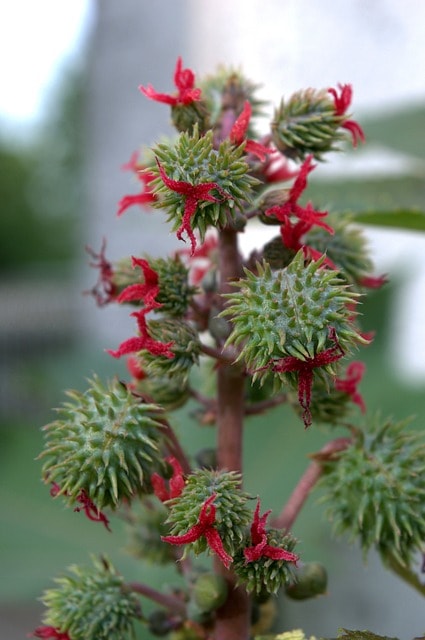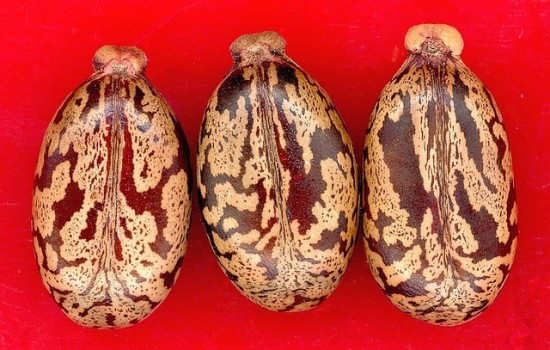Do you love using castor oil daily? Learn interesting castor oil plant facts, what it looks like and growing tips exclusively at COG.
After you’ve been exposed to the miraculous power of castor oil plant uses, it’s only natural to start wondering where it comes from. Many people are surprised to learn that this viscous liquid actually originates from a specific castor oil plant. You may be wondering about interesting castor oil plant facts, as well as what it would take to grow it on your own.
Whether you have a green thumb or not, we’ll help you understand what is castor oil plant and everything you need to know about it.
In this article:
- Fast Facts About the Castor Oil Plant
- Tips to grow Castor Oil Plant
- Can I Make My Own Castor Oil?
Fast Facts About the Castor Oil Plant
The first thing you need to know about the castor oil plant is that it is extremely poisonous. Even in very small amounts, the poison contained within their “beans” can be very hazardous to your health. Many people continue using a plant as a tropical addition to their landscaping, but you should be aware of its toxicity.
In case you’re wondering what does the castor plant look like, the plant has the following features:
- 12-lobed fan-like leaves
- Red to a bronze cluster of fruit
- Height of about thirty to forty feet
- Grows up to six feet each season
This plant is originally native to Africa and other warm areas of the globe. It thrives in tropical climates but is relatively easy to grow in more moderate climates as well.
Tips to grow Castor Oil Plant
If you love using castor oil in your daily beauty routine, it’s only natural to wonder if you could grow this plant yourself. What would it require for you to be able to harvest your own castor oil seeds?
Because the plant tends to be native to Africa and India, you will need to live somewhere that provides enough heat and humidity for the castor oil plant to thrive. Depending on your specific climate, it may even be possible to grow it in areas along the coast. Be aware that it needs plenty of sunshine.
The water will always need to be fairly moist. If you live in a particularly dry part of the world, this may require a lot of tending.
Can I Make My Own Castor Oil?
It’s NOT recommended to make castor oil at home, even if you can successfully grow a castor oil plant.
The seeds and pods that grow are extremely poisonous and pose a major hazard to your health. In fact, you should even use gloves to handle the seeds prior to eliminating the poison through heat.
There are different methods of producing castor oil, but you won’t want to take the chance of doing it incorrectly at home.
The best type of castor oil to purchase is cold-pressed because it gives you all of the benefits without detracting from any of the inherently advantageous properties. However, you won’t be able to handle the seeds in order to make this safely from the comfort of your own home.
Final Thoughts
The castor oil plant could be a beautiful addition to your garden, but it may not be worth the risk to your health!



Can you tell me it castor oil has a high Nickel content?